#Healthcare Science (Field Of Study)
Explore tagged Tumblr posts
Text
Beyond the Bulge The Hidden Impact of Inguinal Hernias on Your Quality of Life #qualityoflife #livin
#herniaawareness #fixhernia #hernialife #herniaproblems #inguinalhernia #hiatalhernia #umbilicalhernia #herniarepair #postoplife #healthychoices source

View On WordPress
#abdominal wall reconstruction#Baylor College of Medicine#BCM#complex hernia#complex hernia repair#Dr. David Farley#Dr. Michele Loor#Health Care (Issue)#Healthcare Science (Field Of Study)#hernia#hernia mesh#hernia repair#hernia surgery#hiatal hernia#Houston#incarcerated hernia#incisional hernia#inguinal hernia#laparoscopic#Mayo Clinic#mesh#Saving Lives With Gus#Texas Medical Center#TX#usa#ventral hernia
0 notes
Text
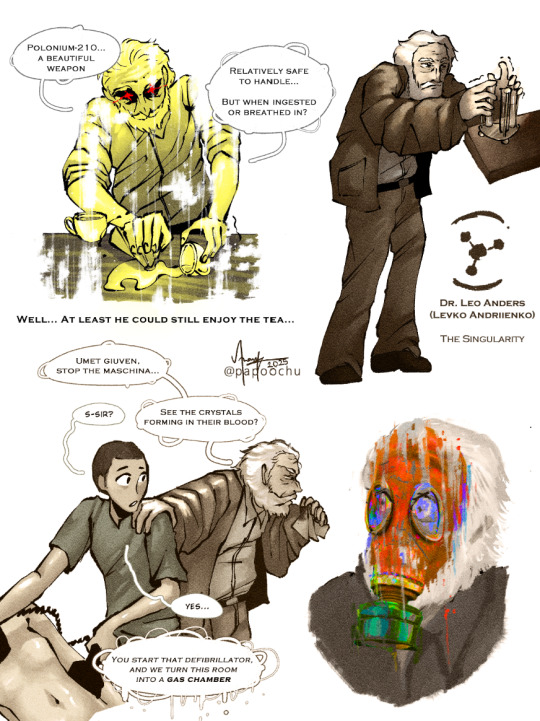
Okay, next on my list is Dr. Leo Anders, formerly known as Levko Andriienko. He would be a great conversationalist!
I'm going to go back and make minor changes to some of the bios that are already up (just color corrections and making sure everything is updated), so just letting y'all know!
Background
Born Levko Andriienko
Levko = means “lion,” representing strength, courage, and a fierce will to survive (ironic)
Diminutive form - implies a boyhood identity, or something emotionally vulnerable.
Andriienko = Ukrainian surname from Dnipropetrovsk region, symbolizing resilience and intellectual tradition; rooted in family and place, it connects him to the past
In Soviet context, his full name subtly marked him as "not quite Moscow"
Born 1933, in Dnipropetrovsk, Ukrainian USSR, into a modest family of engineers and educators
Showed early aptitude for physics, studied nuclear science in Moscow during the 1950s
Raised with strong faith in Soviet ideals, believed in science as a tool for progress and societal good
Chernobyl Disaster (1986):
Senior scientific advisor involved in emergency response at Chernobyl nuclear plant
Was one of the scientists who proposed the use of boron compounds to absorb neutrons and limit radioactive fallout, a key but little-known intervention
Witnessed firsthand Soviet government secrecy, misinformation, and chaos during crisis management
Worked as one of the liquidators who was not compensated properly
Exposed to high levels of radiation, suffering long-term health consequences
Deeply traumatized by the disaster and the suffering of victims, burdened by survivor’s guilt
Post-Disaster Years:
Emigrated to Graubünden, Switzerland soon after the disaster, rejecting the Soviet system and Ukrainian identity publicly
Chose Switzerland due to its priority of safety in science field as well as for its advanced healthcare
Changed his name to Leo Anders
Shedding a name with history for one that sounds clean, Western, untraceable
“Leo” is still “lion,” but now generic - a hollow echo of his true self
“Anders” is Scandinavian/Germanic - means “different” or “other”
Lived in relative isolation; worked on independent research, disconnected from official scientific communities
Physically weakened by chronic radiation sickness: fatigue, thyroid problems, neurological symptoms, lung deterioration
Haunted by memories and guilt, avoided public attention and political engagement
The Council’s Contact (1988):
Approached by the council
Initially skeptical, but accepted their offer for renewed purpose and resources
Began advising the Council on sensitive, secret projects with far-reaching ambitions
Bound by secrecy and loyalty, conflicted over his role and the Council’s shadow agenda
Life in Switzerland and Personal Struggles:
Experiences recurring nightmares and PTSD symptoms tied to Chernobyl trauma
Has obsessive behaviors and is very concerned with health/safety
Torn between hope for positive change and fear of complicity in the Council’s morally ambiguous plans
Uses work as a custodian of classified scientific and nuclear data for the Swiss government to channel his need for control and order (irony)
Present Day (2016):
Age 83, physically frail but mentally razor-sharp, a man who exerts power through knowledge and control
Custodian of classified nuclear and scientific data for the Swiss government, guarding secrets that could unravel nations - or rebuild them
"Order and method are his Gods" - Agatha Christie about Hercule Poirot
Every piece of information is meticulously cataloged and controlled to maintain a fragile balance
Obsessed with control and precision, he micromanages access to information like a vigilant, overbearing guardian - protecting the world from chaos, even if it means suffocating it
Deeply cares about the world’s survival, but his care manifests as relentless interference - an unyielding “helicopter parent” who won’t let anything deviate from his plan
Ruthlessly pragmatic, he believes the ends justify the means; innocent casualties and moral compromises are unfortunate but necessary collateral in his vision of stability
Haunted by his trauma at Chernobyl, he projects his guilt into a compulsive need to prevent further disasters through absolute order
Uses his position to manipulate political players and shadowy organizations, ensuring no secret slips, no chaos erupts
His “children” are watched closely and corrected swiftly
Lives behind layers of secrecy and detachment
Privately struggles with the suffocating burden of his responsibility and his inability to truly protect those he cares for
Design Notes/Character Study
Mirror to Victor Serdtsev
Both academics around the same age who were under the USSR but each turned out VERY different
Inverted color schemes
Take design points and swap them
Holds a handkerchief for his mild hemoptysis
Hunched
Shaky hands
Obsessive behaviors
See Poirot for reference
Very concerned with health and safety
"Helicopter parenting" - authoritative ideology comes from care, not apathy
Associations with Boron: Boron has 3 valence electrons, like the symbol on the atom
Years in isolation made him awkward in social environments
Formally dressed, but with a deeply casual, cerebral, sometimes haunted energy; rumpled, disheveled
Neutral palette
References: President Snow, David Attenborough, Richard Feynman, Noam Chomsky, Oppenheimer (Cillian Murphy in Oppenheimer)
Time has not been kind - emphasize his age
Speaks Romansh
Pictured:
Reference to Gloria Ramirez tragedy: emphasizes his ideals of utilitarianism
Reference to Polonium-210 assassination: ironic given his hatred towards the Soviet Union
Assigned a brown color scheme: he is stuck in the past despite his attempts to leave it
#i found that i actually really like drawing older people#noice#miraculous ladybug#mlb#fanart#character design#oc#original character#council#leo anders#levko andriienko#the atom
112 notes
·
View notes
Text
So, in science & technology studies, one of the words we throw around is "scientization," the act of making something into a science. And, you know, a lot of this is good, or at least neutral: the scientization of medicine; the scientization of cosmology; it means that a field has gotten more rigourous and definitive than it used to be.
But in politics, what scientization often means is that something that should be a policy issue is kicked over to scientists as a means of naturalizing or normalizing it, exempting it from normal political debate, or avoiding responsibility for unpopular decisions. "Oh, we needed to bomb this place because our models said it would end the war faster"; "Oh, we needed to privatize this service because our economists said it would save us money"; etc. And a lot of the debate in the field of science policy is given over to the question of when is it legitimate to kick something over to scientists, and in what contexts, because it's often kind of arbitrary. Like, I think that anyone who takes climate change seriously believes that science needs to inform the response to it, but you can build whatever assumptions you want to into your models, and the math will gobble them up indifferently; and Western liberal governments have overwhelmingly chosen to imagine scenarios where we can just keep doing capitalism because magical new "carbon capture" technologies will probably be invented down the line, and cap-and-trade will probably work perfectly, and anything that might be lost due to climate change can be straightforwardly assigned a monetary value and compensated, and refugees from desertification and rising sea levels will probably just not exist and so on. [Obligatory reminder that Climate Change is way worse than pretty much anyone in mainstream politics is willing to admit]
And anyways, I think that a special case of this "scientization-as-political-bullshit" phenomenon is at play in the field of polling. Like, consider Kamala Harris's entire campaign (or if you prefer, practically any neoliberal politician's campaign anywhere in the world since 2008 or so). This was a campaign where seemingly every decision was kicked over to pollsters. Can't call conservatives weirdos--you might offend moderates! Can't call on Israel to stop bombing Gaza--you might offend moderates! Can't stand up for transgender rights--you might offend moderates! Can't call for single-payer healthcare--you might offend moderates! And so on, and so forth. In every case, it's trying to do politics without being political, and it's doing so by embedding a bunch of incredibly insidious assumptions into models and then calling it science! Like, maybe "moderate" voters would get on board with a ceasefire, or trans rights, or single-payer healthcare, if a prominent politician with a billion-dollar war chest to get her message out fucking tried to make a case for it! Like, remember when the overwhelming majority of Americans opposed gay marriage? I do! I wonder why that changed? Or, for that matter, why courting moderates--as all of these models seem to assume--should necessarily be a higher priority than inspiring disenchanted voting-age adults to turn out at all?
And I worry I'm making this sound like innocent incompetence--it's not. This was done very specifically and very intentionally to foreclose upon discussion of progressive priorities while saying that you're being scientific; while saying that you are, ridiculously, being apolitical when a running a political campaign. And now we have these useless, disingenuous assholes patting themselves on the back and saying that this campaign was never winnable! Because the "SCIENCE" says so!
And meanwhile, you have Donald Trump--idiot nazi bastard thug child of a demon and a swine Donald Trump, cursed be his name--bowling through the political scene like a bull in a china shop, utterly indifferent to all of these fancy-schmancy mathematical models and too stupid to understand them...and winning enormously! Making his own coalition. Because thick as he may be, ignorant as he may be, incurious as he may be, he at least knows one single solitary thing that the Democrats don't: Politics isn't science; it's magic. And you don't get anywhere in magic without the will to power.
#essay#long post#us politics#neoliberalism#science#scientization#science and technology studies#policy#polling
192 notes
·
View notes
Text
What "THE PITT" Characters (probably) studied in college. Part II.
Michael Robinavitch | Anthropology and Biology Robby would be the one to fight to figure out what makes people human - where different cultures meet and what shapes someone to become who they are. He still wanted to ground himself in science and his grandmother pushed him into biology which he ended up loving.
Frank Langdon | Sports Science (+ Chemistry minor) He wanted to stay in the sports world until he injured his back. That is when his guidance counsellor gave him a wake up call and he took on a chemistry major to try and aim for medical school. If he couldn't play himself, at least he'd be there to prevent the same fate for others.
Samira Mohan | Microbiology I can see Mohan enjoying the science behind medicine almost as much as she does clinical work. She likely envisioned a research career with a masters and a PhD until she took pathology classes and it all changed.
Yolanda Garcia | Finance Garcia wants it all and is confident in her abilities. She was gunning for an investment banking job with a 4.0 and a stack of recommendation letters before falling into the healthcare field and realising that she wanted to apply her skills elsewhere.
Emery Walsh | Physics I will NOT leave the train of "Walsh was in the Air Force". She likely loved hard sciences and doing the groundwork to gain the knowledge to solve and then apply her skills to practice in the military. And competing for who would be ranked number 1 (not out of wanting to be an overachiever but to show who was the lead) was just an added bonus.
Parker Ellis | Genetics and Mathematics No nonsense, quantifiable answers to questions, good base for someone on a pre-med track but with protection in case medicine hadn't worked out.
#the pitt#the pitt hbo#michael robinavitch#dr robinavitch#dr robby#samira mohan#dr mohan#yolanda garcia#dr garcia#emery walsh#dr walsh#parker ellis#dr ellis#tv shows#tv series#medical drama
47 notes
·
View notes
Note
Hi Mark,
My name is Isaac Holguin. I sent a detailed email regarding your work on the color pie over the years to [email protected]. I hope that is the correct avenue to reach out to you. I had the pleasure of being answered on this blog as well, so I thought I'd double check by contacting you here. In case the email listed isn't in service anymore, I've copied my message below. I hope this reaches you and that you're doing well. If you're able, I'd love to hear back at [email protected]. Thanks for all you do!
----------
Hello Mr. Rosewater,
My name is Isaac Holguin and I'm a nurse studying leadership and education in Tucson, Arizona. Before I get into the topic of my email, I'd just like to say thank you for being a spokesperson for Magic the Gathering all these years! I've played the game since I was thirteen years old, all through college, and well into my career. Magic the Gathering has helped me make new friends and deepen bonds with people I already had in my life. Though I've stopped participating in recent years, the game will always hold a special place in my heart and I've still got an Alpha Serra Angel that is as old as I am!
One of the best memories I have from my time with Magic was diving into the color wheel breakdown series from your "Drive to Work" podcast. During my pursuit of a Bachelors in Nursing Science, I often cited the color wheel as a tool to determine personality traits and compared it to other topics in my studies. Now that I'm pursuing my Master's degree in Nursing Education, I'm interested to see if there were any references or inspirations for the development of the color pie. With the recent popularity of the Myers-Briggs assessment (16 Personalities), Ten Faces of Innovation, and other similar tools I'd like to try and adapt the color pie as a leadership/personality assessment. I understand there will be multiple steps involved to publish such a study with respect to Hasbro and Magic the Gathering as a company, but I would like to attempt to lay the foundation of this project during my studies.
The goal of this project would be to introduce an existing, incredible, fun, and easy to use tool to a vast new audience. Helping others acknowledge that all aspects of the personalities presented exist within them to some degree and can evolve over time has become a core belief for me both personally and professionally. Examples of "your greatest weakness is your greatest strength pushed too far" and the idea that the capacity for good and evil exists in any aspect of a personality are incredible insights that I haven't seen cited enough throughout my studies. My wildest hope is that this tool would be utilized in coursework for multiple professions, similar to the curriculum I'm studying now, to help future leaders reflect on their strengths and develop effective leadership styles.
In short, I hope that you're doing well and would love to hear your insights, recommendations, and references for the work you've so passionately brought to thousands of others of the years. Even if you're unable to share certain aspects of your work, I'd like you to know that your endeavors have not only brought relief and happiness to healthcare workers like me, but that you've inspired so many others to apply the lessons of fictional works to improve our reality. The lessons gained from my long history with this franchise have helped me connect to others in their most vulnerable moments, and improve their quality of life. Thank you for all that you've done, and I wish you continued success in a field you've already become an exemplary expert in.
Sincerely,
Isaac Holguin
BSN, RN
I’m always excited to hear about ways people can use the color pie outside the context of the game. I’m not sure what I can do to help you.
51 notes
·
View notes
Text
Intro post!!!

Hi, I'm R and I'm starting this study blog to track my progress and hold myself accountable (sort of like a digital diary)
About me -
Currently enrolled in a post graduate program in data science and business analytics (started it when I was feeling lost and didn't know what to do with life but now might as well finish it with a good grade)
Preparing for an entrance exam for a master's in electrical engineering (because this is what I really want to do)
Full time job in healthcare management (and somewhat hating it) (not because it's bad but I just really want to make robots and stuff)
Other things I'm interested in or want to learn (but can't commit to right now because I only have 24 hours in a day)
Photography & Cinematography
Digital art
3D modelling and animation
Japanese
Programming (specifically ML & AI)
Pencil Sketching
Writing
Sanskrit
Indian Mythology
Reading
Astrophysics (just want to learn for the heck of it; don't really want a career in the field)
All photographs are my own unless specified otherwise.
I'm very bad at finishing things I start so that's why I'm going to document my life from now on to keep myself accountable. Wish me luck!!! 🤎
32 notes
·
View notes
Note
Would you ever feel comfortable sharing more about your decision to go into medicine and what you’re hoping to do as your specialty in the future? Also, just how hard would you say the MCAT was?
Hi! I’d love to share about my journey to MD so far. To anyone who ever has any questions, please feel free to reach out!
I knew I was interested in medicine after watching Grey’s Anatomy in high school. I know this sounds so dumb and cliche, but the human body became interesting to me after that. Before, I wanted to be a music teacher because I played (and still do play semi-professionally and teach lessons) clarinet. My parents warned me about turning my biggest stress reliever (playing music) into my job. At the time, I was pissed, but I’m so glad I listened because now I can still play music to escape from the stresses of research and medicine.
I majored in biomedical engineering during undergrad. Med school was still up in the air for me because I loved the idea of working on medical devices. After volunteering in my hometown’s free clinic and shadowing physicians, however, I realized I didn’t want to be “behind the scenes” of medicine, so to speak. I wanted to be with the patients, to help them firsthand.
So, during my senior year, I made the decision to attend medical school. I was not ready AT ALL. I didn’t even apply my senior year. Instead, I got my master’s in biomedical sciences after graduating undergrad.
I struggled with the MCAT even then. Despite my master’s degree, there was so much material that I didn’t know for the exam for many reasons: online undergrad classes due to COVID, poor studying habits of my own, and just general material I had never learned. The MCAT itself, as long as you know the material, is just a comprehension exam. It’s a LOT of being able to focus on the main point of questions while absorbing a lot of material from passages. Much like trying to find a patient’s diagnosis when they give you their entire medical history and life story.
So I took a job in physiology research, continued to take grad classes, met the love of my life and got married, and kept studying! After three application cycles, I was accepted to my state’s MD school! I only applied to this med school. I know I could have been accepted at other med schools, MD and DO, but I wanted to attend my state’s MD school where my husband and I (and my parents and brothers) live.
It was a long journey, and I’ll be a couple of years older than more than half my med school class, but I believe everything happens when it’s supposed to happen.
I’m not 100% sure on speciality yet! Something procedural for sure, like surgery or interventional radiology. A lot of my friends and family who are in the healthcare field tell me that I would be a great OBGYN, so who knows!
Thanks for reading about my journey to MD! If anyone has any specific questions about med school applications (I learned every trick necessary to distract from my MCAT score lol), interviews, or anything at all, please feel free to message/inbox me!
9 notes
·
View notes
Note
i think it's so cool that you're a biology researcher! if i may ask, how did you find yourself in that path and how did you know you wanted to go to med school? i'm not in college yet but i've been considering the possibility of clinical practice in the future but i am not too sure 🥹
hi!! omg that's so exciting i remember trying to figure it out as well. this is LONG because i have a lot of advice so i am vv sorry in advance!
so i spent most of my time in high school thinking i was going to be an engineer. i'm talking 4 courses of physics, multivariable calculus and self-taught diffEq, statistics, more calculus, two years of computer science, and I did a physics program at Fermi Lab. I was always interested in biology and medicine though, so in my head the best overlap was going to be biomedical engineering.
but when i started actually applying to biomedical engineering programs, i started to realize that if i went into bme, i'd end up just inches away from the job i actually wanted. like, i'd be developing the tools but i wanted to be at the physician-patient interface. and that kind of made up my mind for me, that i at least wanted to try to be in medicine.
so i hail mary'd and i applied to a direct-med program-
(sidebar, i don't actually know if this has come up so much as it has been sign-posted by my linguistic preferences but i'm american and studying medicine in america is one triple mega xl shitshow. in a direct-med program, rather than applying to undergrad, finishing, maybe taking gap years to build a cv?, and applying out to medical schools, then residency + fellowship which is a grand total of like 1 trillion years, you apply to med school and undergrad at the end of high school and then you kinda have a conditional admission to med school as long as you complete the pre-med requirements and it shortens the process to a conservative 0.8 trillion years.)
i've done an unfortunate job here of making this process seem horrible, but i will say two things: this process is long and difficult. you know what the interesting thing is though? life is usually both long and difficult. there are easier ways to make money, there will always be easier ways to make money – but if you love medicine and you love biology, the fulfillment you will have practically every day as you make your way through this process outweighs everything. i have spent twelve hour days in lab, come in on weekends, left at ungodly late hours all for minimum wage and felt blinding satisfaction that is rare to find in a lot of roles. and i've heard similar things from a lot of my friends. i will never pretend it's easy, but something being hard doesn't make it not FUN.
-and i got in! even then, i wasn't sure if locking myself into a med program was the best idea since literally months before that i was so committed to engineering. but i knew that if i put myself into that program, i would come out the other end a physician and i wouldn't regret it. and honestly, i'm extremely grateful for this because it surrounded me with a cohort of peers who all delusionally committed to medicine at the age of 17. they're the best :) and they were the biggest influences on my love for my intended career.
if you're from literally any other country (most do medical education differently), it will be a little bit of a different experience but i think broadly surrounding yourself with peers who can encourage you and inspire you to find ways to be fulfilled within the healthcare field and help you not second guess your decision is super important. i also think if you're interested in maybe being in clinical practice, taking a look at studying medical humanities (bioethics, medical sociology, health policy, the history of medicine) could also be an interesting exploration because it will get you in touch with both the art and science of medicine. the humanistic components are understudied by a lot of aspiring physicians but if you root your passions there i swear you never lose it.
when it comes to medical/biological science (and my now position as a vascular biology researcher), i started with bench science research in undergrad! i cold emailed a bunch of principal investigators to find if they had room for an undergraduate research assistant, and i found a lab that studies blood vessel growth and became insanely attached to the subject matter. i get to do a cool combination of hands-on science and data analysis, and they give me a lot of room to take charge of the project and present its findings.
i always thought i'd wanna do research 'curing' something, like research that specifically impacts a disease. my research, however, is basic science research – so i'm basically trying to figure out how a set of genes work and what they do because we don't know it yet! i never thought i'd fall in love with this project but i did! so my advice on research is to reach out to whoever you can, try to find good mentors, and keep on open mind. you never ever know what you'll end up with a passion for.
let me know if there are any other questions i can answer! but you're early in the process yet – you have a lot of time to explore :) i'm not sure all of this was actually useful advice cos the path i took was kind of a niche path, but i swear i can give better more applicable advice.
#not f1 related#career planning?#my educational journey#you ask i write an essay#ecrireverie#medical school#biology#research
9 notes
·
View notes
Note
public health-related question, what are your thoughts about the NIH compiling medical records for studying autism? i'm concerned about the idea of autistic people being registered, as well as about privacy in general, but it also seems like having this data available could be beneficial for medical research in general? this is not my field at all, but in my science niche, lack of data is always a huge problem, so i can see how this could be beneficial.
I share both your concerns about privacy and your inclination that this could be beneficial for research. Balancing the potential benefit of research with the potential risk to research subjects, as well as how to protect privacy in the process, is the fundamental ethical challenge of human subjects research. There are people whose entire job is dealing with this.
I'm going to quote a CBS news article:
The National Institutes of Health is amassing private medical records from a number of federal and commercial databases to give to Health and Human Services Secretary Robert F. Kennedy Jr.'s new effort to study autism, the NIH's top official said Monday.
This sounds like the NIH will be taking information that is already available and compiling it in a more efficient way. Here's a quote from RFK Jr himself:
"The idea of the platform is that the existing data resources are often fragmented and difficult to obtain. The NIH itself will often pay multiple times for the same data resource. Even data resources that are within the federal government are difficult to obtain," he said in a presentation to the agency's advisers.
If this is accurate, it sounds like this is medical information the NIH already had access to. Public and private institutions often maintain databases for their own research or other purposes and allow other institutions or researches access to their databases, often for a fee. He also mentions that some of the existing resources already belong to the federal government, which makes sense. Anyone who has listed autism on their application for disability benefits, for example, is already identified in government records.
My primary privacy concern, with the information I currently have, is whether all of the patients whose records are included signed an informed consent form indicating that their records may be shared with other institutions for the purpose of research. If some of the databases belong to healthcare providers or insurance companies, patients may not have universally consented to that, and those companies should only provide the records of patients who did. If this mostly involves existing research databases that RFK Jr wants to compile into a single, more comprehensive NIH resource, I'm less concerned about that because I would expect the original institutions to have included sharing data in their informed consent document. If any of them did not, however, those records should not be given to NIH.
I don't have experience with this kind of research, so I'm not certain what the standard is with medical records, but in the kind of research I do, it's standard practice to anonymize data. Theoretically, you could create a database of anonymized medical records, allowing scientists to conduct autism research but not to identify the subjects. RFK Jr's mention of an autism registry makes me think the records he's after are not anonymized, but I'm not sure. Again, the government already has access to at least some identifying information about autism through other government agencies, but I'm not sure of the numbers, and I know a lot of autistic people don't qualify for disability benefits.
The National Institutes of Health exist to conduct publicly funded health research. In theory NIH is an organization we should be able to trust with sensitive medical information. Under other circumstances, I would think the NIH compiling and maintaining a secure comprehensive database for autism research would be a pretty good idea. A single database is more efficient and the NIH should be an organization that can be trusted with sensitive and confidential data. Unfortunately, the current administration has a pretty bad track record with information security already, so some level of concern is not unreasonable under the circumstances. This is yet another reason not to put right wing lunatics in charge of the federal government!
I know you don't need this reminder but just for anyone else reading who might, "autism research" sometimes gets associated with the Autism Speaks crowd, but that's an unfair association. Autism research does not mean trying to find a "cure," it means gaining a deeper understanding of how autism works. This is beneficial to the autistic community, because it helps develop better ways to support and accommodate autistic people.
In terms of how we should feel about this right now... that's hard to say. "Autism registry" sounds scary but I don't think there's any reason to jump from that to the government trying to round up autistic Americans. I think RFK Jr is more interested in trying to prove vaccines cause autism (they don't) than in any kind of systemic control of autistic people. I think the biggest issues facing autistic Americans right now are disability benefits being cut and the Department of Education, which handles special education resources, being dismantled. This government compiling any kind of registry is something to keep an eye on, but I don't think this is an immediate cause for panic.
8 notes
·
View notes
Text
on reflection, i think there's a symmetry to, say, doctors who are willing to refer patients to osteopaths or other ""holistic"" healthcare providers and the susceptibility of engineers to certain kinds of crankdom (of the "i-disproved-relativity-in-my-garage" type). both are forms of scientific training of a sort, but they're heavily outcome-focused and not theoretically focused. in large part, this is good! you do not as a doctor need to have a robust theoretical defense of every treatment you provide to patients, and it would be impossible to do so, because medicine is a huge and complicated subject. you do not, as an engineer, need to have a subtle grasp of theoretical physics to build a bridge; you just need to know what the latest developments in bridge-building are.
but it means in both cases you can have people who are skilled in their field, or who even excel, but who don't understand very well why certain techniques work. and in the case of alt medicine, where there has been considerable work to try to obfuscate or deceive people on how shaky the theoretical basis for their techniques are (stuff that literally if you remember your high-school physics and biology at all will make you go, "wait, there is no plausible mechanism for this, that's not how any of this works"), doctors who do not have time to read studies on RCT trials of every type of medicine they have ever heard of will blithely recommend stuff to patients that's actually complete horseshit, especially if the culture around them has been normalizing that woo as part of "holistic" therapy for the last hundred years, spurred on by alternative medicine practitioners and a public with a fear of needles and ~chemicals~ that medical practitioners have not done enough to allay.
it does not help that medicine only emerged very recently from being about 99% bullshit. like maybe at the end of the 19th century at best medicine was starting to be put on a broad-based empirical and theoretical footing--before that it's truly insane the stuff that wasn't just considered perfectly normal medical practice, but was considered serious Science. i mean, this is why we developed double-blind studies in the first place--because theoretical explanations of medical treatments are still necessarily often secondary to the process of finding ones that actually work, so we need really robust mechanisms to avoid confirmation bias or outright charlatanry. and while mainstream medicine is far from perfect in this respect, "alternative medicine" is all far, far worse.
#imagine if bridge-building was still trial and error half the time#like medieval cathedral building#that's probably not very fair to medicine#like we've gotten so much better in just the last seventy years#at targeted medical research#but still sometimes we develop new treatments#and we're like 'idk why this works but i'm pretty sure it does'#psychology still feels like it's full of individual practitioners with idiosyncratic theories#inventing therapies in an ad-hoc way#like ye olde 19th century doctors#but psychology is still theoretically very weak#so that kinda makes sense to me
97 notes
·
View notes
Text
Inguinal vs Femoral Hernias Sorting Out the Similarities and Differences Between Two Groin Troublem
#herniaawareness #fixhernia #hernialife #herniaproblems #inguinalhernia #hiatalhernia #umbilicalhernia #herniarepair #postoplife #healthychoices source

View On WordPress
#abdominal wall reconstruction#Baylor College of Medicine#BCM#complex hernia#complex hernia repair#Dr. David Farley#Dr. Michele Loor#Health Care (Issue)#Healthcare Science (Field Of Study)#hernia#hernia mesh#hernia repair#hernia surgery#hiatal hernia#Houston#incarcerated hernia#incisional hernia#inguinal hernia#laparoscopic#Mayo Clinic#mesh#Saving Lives With Gus#Texas Medical Center#TX#usa#ventral hernia
0 notes
Text
Understanding the Types of Literature Review: A Comprehensive Guide
Understanding types of literature review: A comprehensive guide.
Literature reviews are critical components of academic research that give an overview of the available knowledge relating to a particular topic. This helps to identify gaps, forms a basis for further research, and grounds the study on established theory and evidence. Literature reviews, however, do not fit in one single type. Rather they are of different types. Each depends on the purpose and approach of the research. Let's have a detailed view of the types of literature reviews. ### 1. Narrative Review
A narrative review, sometimes known as the traditional one, gives a general overview of research regarding a particular topic. It is descriptive and focuses on summarizing and synthesizing findings without much depth analysis.
Key Features:
Focuses on storytelling and descriptive summary. - Majorly used in fields such as humanities and social sciences.
Lacks a systematic methodology for selecting studies, which can lead to bias.
Purpose:
Narrative reviews are ideal for understanding a topic broadly and identifying general trends or patterns in the literature.
2. Systematic Review
A systematic review is a rigorous and structured approach to synthesizing research. It follows a predefined protocol to ensure transparency, reproducibility, and comprehensiveness.
Key Features:
Has explicit inclusion and exclusion criteria.
Is planned in databases systematically to find studies.
Keeps bias at a minimum by having a clear methodology.
Purpose:
Systematic reviews are applied to answer particular research questions, especially in fields like healthcare, psychology, and social sciences. Systematic reviews come with immense value because of their reliability and objectivity.
3. Meta-Analysis
A meta-analysis is a type of systematic review that pools data from many studies together using statistical methods to make their own synthesis, which tries to produce a quantitative overview of research findings.
Key Features:
Assumes all studies share similarities in methodology to compare them. - Offers results with statistical significance by combining data. - Is considered a demanding statistical process.
Meta-analyses are commonly used in medicine and psychology to determine the effectiveness of interventions or treatments. ***
4. Scoping Review
Scoping reviews are exploratory and aim to map the breadth and scope of research on a topic. Less focused on answering specific questions and more on identifying research gaps, they are considered exploratory. #### Key Features:
Wide inclusion criteria, casting a net to encompass all aspects of a topic. Does not critically evaluate the quality of included studies in depth. Often a precursor to a systematic review. #### Purpose:
Scoping reviews are suitable for nascent research areas or subjects where there are a few published studies to date.
5. Integrative Review
An integrative review combines qualitative and quantitative research to achieve a holistic understanding of the topic under review. * Key Features:
It integrates data based on diverse methodologies.
This integration encourages innovation.
It is useful in the development of theories or models * Purpose:
It is common to find such reviews in nursing, education, and healthcare research where mixed methods are often employed.
6. Critical Review
A critical review evaluates and critiques existing literature, often proposing new frameworks or perspectives.
Key Features:
Involves in-depth analysis and interpretation.
Challenges existing assumptions or theories.
Requires a strong theoretical foundation.
Purpose:
Critical reviews are ideal for advanced academic writing, such as dissertations and theoretical papers.
7. Theoretical Review
Theoretical reviews focus on examining theories related to a topic rather than empirical research.
Key Features:
Compares and contrasts different theoretical frameworks.
Identifies theoretical gaps.
Explores the evolution of ideas over time.
Purpose:
These reviews are often used in disciplines like sociology, philosophy, and psychology to refine or propose theoretical models.
8. Annotated Bibliography
A much simpler form of literature review is the annotated bibliography-an overview and critique of each source.
Key Features:
Lists sources with brief descriptions and critiques. Not synthesizing findings from the studies. Serves as a precursor to further developed reviews.
Purpose:
This type is commonly used for coursework or preliminary research to organize sources.
Conclusion
Each type of literature review has a specific purpose and is appropriate for a range of research objectives. Whether the use is about embracing broad trends in a narrative review or diving deep in statistical relationships as in meta-analysis, awareness of the types can guide you towards choosing the right approach for your study. The right type chosen ensures that your research not only becomes more robust but also relevant and impactful in its field. Mastering the art of literature review will keep researchers conversing effectively in the academic arenas while paving a way to make further discoveries.
Need expert guidance for your PhD, Master’s thesis, or research writing journey? Click the link below to access resources and support tailored to help you excel every step of the way. Unlock your full research potential today!

Follow us on Instagram: https://www.instagram.com/writebing/
#dissertation#phd student#thesis#phd life#grad school#phd research#exams#writingcitation#research#literature academia#english literature#literature quotes
13 notes
·
View notes
Text
My take on Raph's Backstory
-Grew up in a small village
-Was the quiet wild child, always curious,
-growing up, other kids thought she was weird, always ignored her- never made fun of her to her face but did talk behind her back
-Spent most of her time exploring and learning about the natural world, didn't have any close friends
-longed for a higher education, even though her family could never afford it she taught herself as much as she could get her hands on
-Got into a high end collage in the city with full scholarships due to her intelligence at a very young age (like 14)
-Goes to school, graduates top of her class
-Becomes renowned in her field, but known as a bit of an eccentric, preforms odd and sometimes slightly controversial studies.
-notices how rigged the system is, healthcare prioritizing the rich and studies being biased towards corporate goals, education kept from the lower classes to keep them from rising in their status.
-Begins to lobby for better education opportunities, better healthcare, and less academic bias.
-multiple slander campaigns against her
-her peers shun her, people once neutral towards her denounce her, and the few people who might agree with her stay quiet in order to keep their funding
-realises that to get anywhere, she would have to undermine the whole system. Im not sure on the details but her science becomes more and more unethical as she gets desperate for a way to change things
-Her sketchy experiments become found out and are all over the press
-put on public trial and sentenced to wing clipping (the worst punishment her society can deem other than death)
-escapes after her wings are taken, killing multiple people in the process.
-gets shot on her way out, and that + her wing wounds bring her to the brink of death
-Manages to drag herself into her lab, and mechanises herself just in time
-Goes on a revenge spree with newfound immortality, kidnapping those who wronged her, preforming gruesome experiments on them and leaking the footage to spread fear.
-eventually gets tired of living rage and sadness
-leaves her planet to find a new start and expand her studies
-finds the happiness and freedom she has always longed for
-eventually finds a mechanism concert, and tricks her way on board, finally finding people who dont shun her, people as horrible as she is.
Lmk your thoughts!
76 notes
·
View notes
Text
The Setting
Bougainville
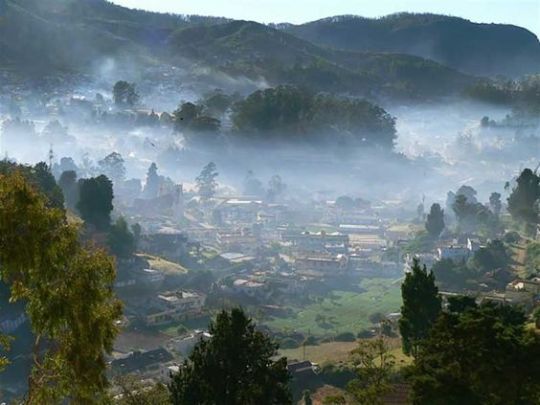
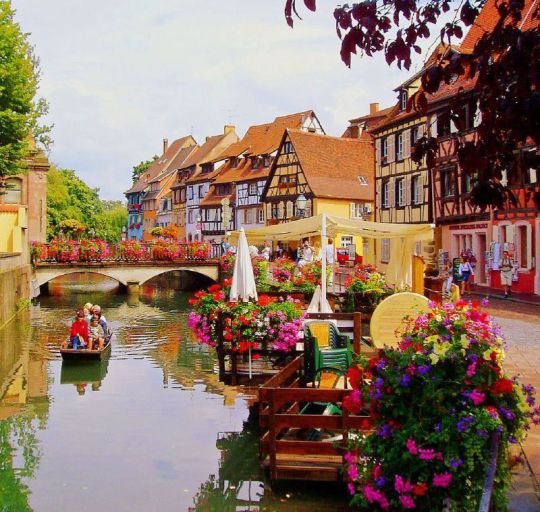
A quaint town with a population of 10,000. Located in the Pas-de-Calais department of Northern France, it is an amalgamation of days past and modern times; preserving its original construction from 150 years ago while intertwining with modern-day advancements.
History

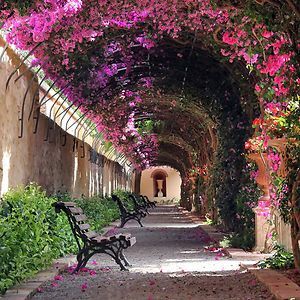
The town was founded in the late 1800s by Olivier Bougainvillea: a renowned physicist from Paris who led a scientific expedition to the area that would later be known as Bougainville. The goal of his expedition was to study unusual electromagnetic radiations within the area. He set up a research base that would inadvertently grow with the influx of scientists and researchers Bougainvillea recruited to participate in his research. The growing scale of Bougainvillea's research necessitated better infrastructure and living facilities; resulting in the arrival of more labor for construction. The rapid influx of people now requiring long-term accommodation in the area demanded more housing, and soon the base had transformed into a small hamlet. Thus, began the settlement of Bougainville. As time passed, the families of the workers and researchers had relocated to the area; operating independent businesses to fill demands such as clothing, food, and other essential supplies. And as the economy grew, so did the settlement. More merchants and businesses settled in the hamlet, and soon, what was once a research base became the town of Bougainville: named after the lead scientist that pioneered the settlement of the area and powered the town with his discoveries and innovations. In honour of his legacy, Bougainvillea flowers line the front of almost every street, creating a beautiful sight at every turn.
Geography
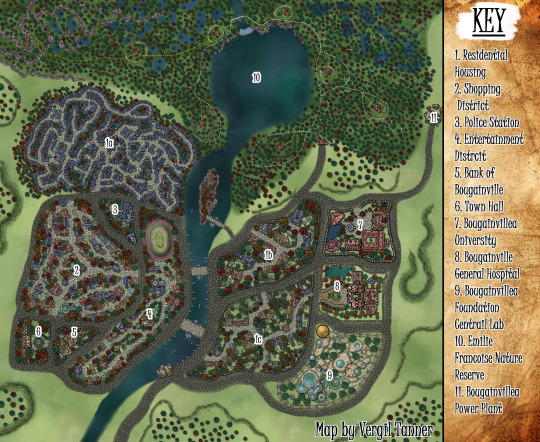
Bougainville has Calais to the north, Le Portel to the west, Lumbres to the east, and Desvres to the south. It is nestled adjacent to the Parc naturel regional des caps et marais d’Opale. As such, lazily drifting fog and chilly weather are a permanent fixture in the small town, perfectly complementing its slow, leisurely lifestyle. A river divides the town into two sides: West and East. Western Bougainville is its central business district; housing the entertainment district and the shopping district; as well as the town hall, Bougainville bank, and police station. Eastern Bougainville is the town’s health and education district; being the location of Bougainvillea University, Bougainville General Hospital, and the Bougainvillea Foundation’s central laboratory; which is open to the public as a science museum. To the north of the town is the Emilie Francoise Nature Reserve, which is 1000 acres of protected marshland and forest. It is also here that the Bougainvillea Power Plant is located; which provides electricity to the entire town.
The Bougainvillea Foundation
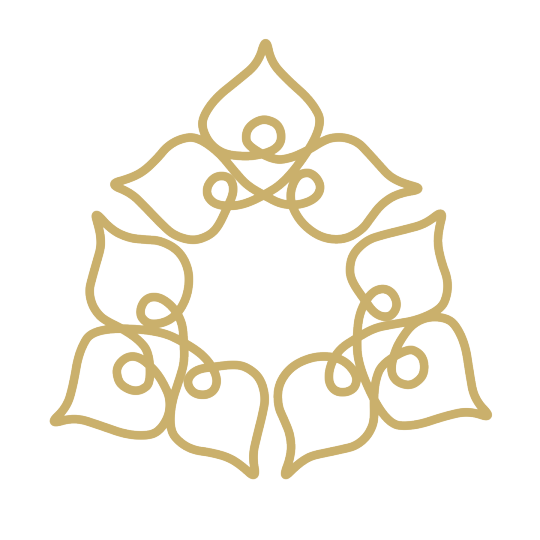
A multinational conglomerate with subsidiaries in a variety of industries.
Including, but not limited to:
pharmaceuticals
medical equipment
electronics
non-profit organizations
military equipment
firearms.
Central Laboratory

One of the crowning jewels of Bougainville, the Bougainvillea central laboratory is a marvel of modern engineering. From its humble beginnings as a research tent, it is now the primary location for all of the Bougainvillea Foundation’s science exhibitions. Thus, it is a famous field trip destination for many educational institutes. It is the oldest and largest lab of the Bougainvillea Foundation. It has contributed much to the lifestyle advancements in Bougainville by: supplying power; being the primary supplier of medicine, medical supplies, and funds the Bougainville healthcare system; and founding Bougainvillea University.
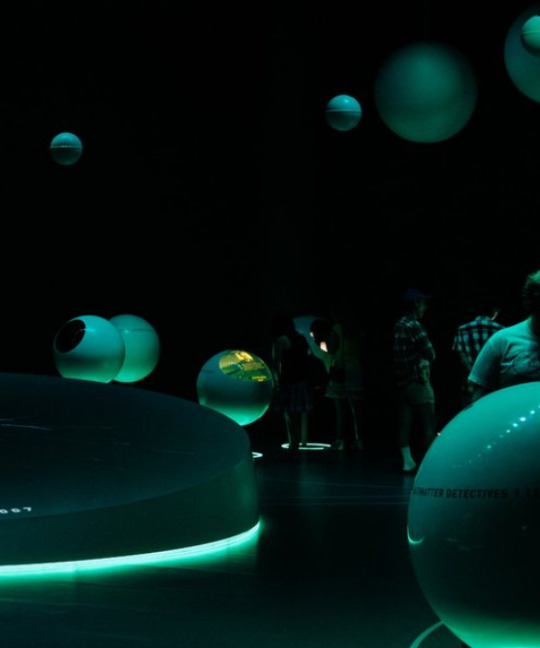

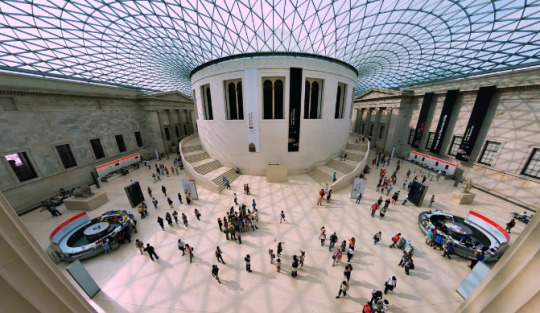
Bougainvillea University

Founded in the honor of Olivier Bougainvillea for his contributions to modern science and the founding of Bougainville, Bougainvillea University strives to shape brilliant minds that will pave the way to innovation and discovery. Graduates of this university may receive highly coveted employment with the Bougainvillea Foundation.
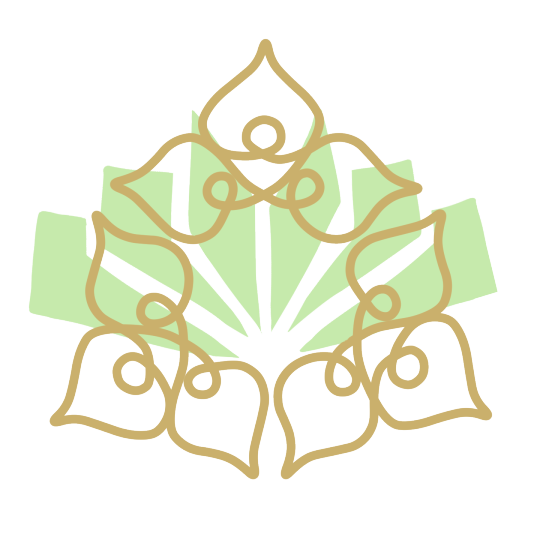

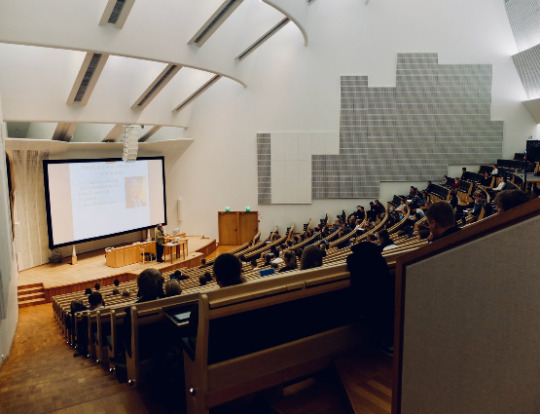

Bougainville General Hospital
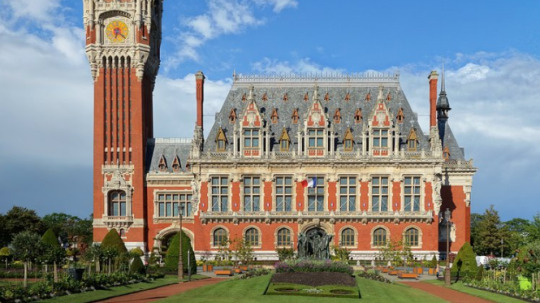
From its humble beginnings as a small 3-bed health clinic, the facility has grown to an impressive 300-bed general hospital with an emergency department and specialist operating theatres. Though it has maintained its original exterior, its interior has been refurbished with state-of-the-art healthcare facilities thanks to the generous donations of the Bougainvillea Foundation.
Shopping District

The location of most of the shops in Bougainville. It is the most popular tourist and student destination in town, boasting an array of grocers, book stores, bakeries, boutiques, cafes, restaurants, and wineries.
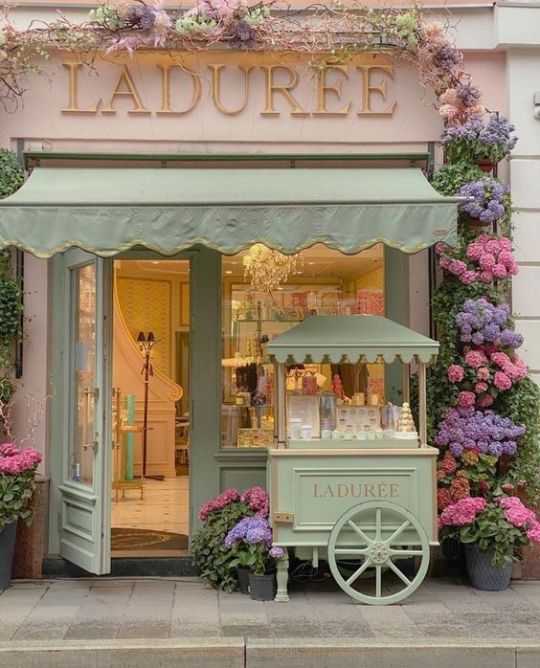
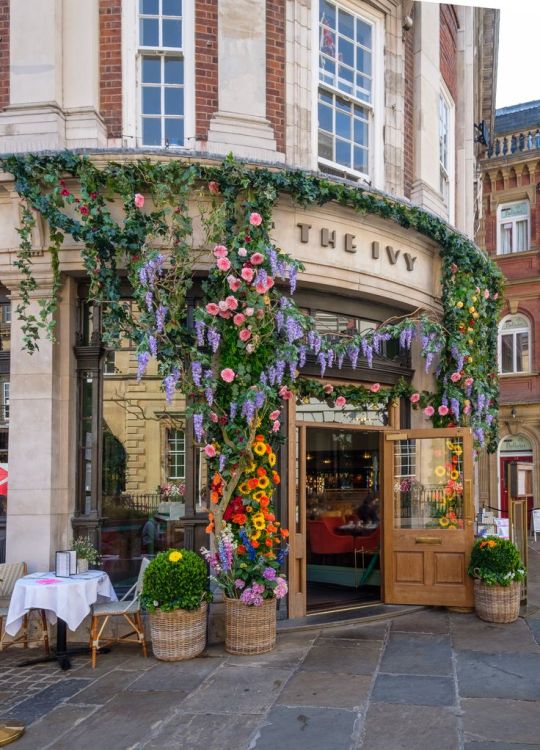


Entertainment District
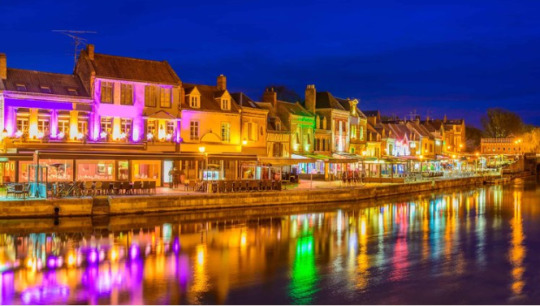
The centre of Bougainville’s nightlife, this area is where most of Bougainville’s adult recreational businesses are located. From bars, taverns, and billiard, to nightclubs, strip clubs and gambling.
Emilie Francoise Nature Reserve

Named after the town founder’s wife and fellow scientist, Emilie Francoise nature reserve is 1000 acres of protected marshland and forest. The reserve is a popular hiking and camping destination for locals and visitors alike. In honor of Olivier Bougainvillea's beloved wife, fellow scientist, and Parisian ecologist, the nature reserve aims to continue the conservation efforts of Emilie Francoise Bougainvillea in protecting the town’s natural landscape.
Key Locations

Luna Lake A crystalline lake that is 30 km wide that reflects the sky like a mirror. At night time, it seems to hold the moon on its surface. It is populated by diverse aquatic life, making it a popular fishing spot.

Bellevue Valley A valley covered with flowers all year long. Different flowers bloom during different seasons and months.

Celine Falls The biggest, most scenic water fall in the nature reserve
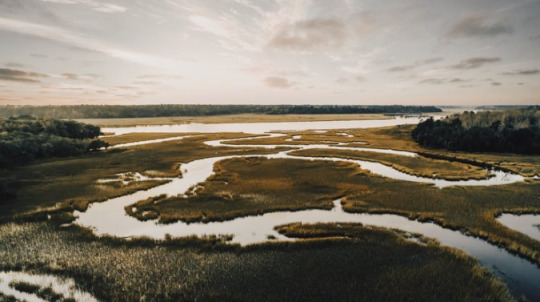
Labyrinthe Marshland The largest marshland in the nature reserve and home to a diverse population of wildlife.
The Underground
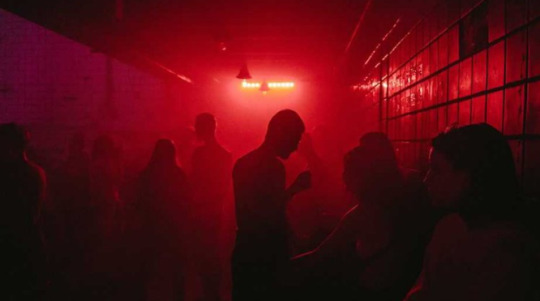
There are whispers of an underground black market where illicit goods and services are distributed. Though its location is largely unknown…
▶ Wildward Master Post
70 notes
·
View notes
Text
Why Actuarial Science Is One of the Most In-Demand Careers in Finance
In today’s world of financial uncertainty, rising risks, and complex markets, businesses are constantly searching for professionals who can help them manage risk, forecast outcomes, and make informed decisions. This is where actuaries come in. Actuarial Science is one of the fastest-growing and most respected careers in finance.
If you enjoy mathematics, statistics, and analytical problem-solving, and are considering a career in finance, then a B.Sc in Actuarial Science might be the perfect path for you. Here's why this field is gaining so much popularity and why students are actively looking for the best B.Sc Actuarial Science colleges in India.
What is Actuarial Science?
Actuarial Science is a discipline that applies mathematics, probability, statistics, and financial theory to study uncertain future events, particularly in the areas of insurance, pensions, finance, and investments.
Actuaries use data to estimate the financial impact of risk and help organisations plan for the future. They assess everything from life insurance premiums to investment strategies and corporate risk management.
Why demand for actuaries is rising
Increasing need for risk management
In today's financial environment, companies face risks from market changes, natural disasters, economic shifts, and even pandemics. Actuaries help businesses prepare for such risks by offering data-driven strategies.
Growing insurance and finance sectors
With the rise of health insurance, life insurance, and pension plans in India, there is a growing demand for professionals who can manage large data sets and calculate risk accurately. Actuarial Science plays a key role in these areas.
A global shortage of professionals
Actuaries are in short supply not just in India but around the world. This makes qualified professionals highly sought after in countries like the United States, the UK, Canada, and Australia.
Benefits of choosing actuarial science as a career
High earning potential: Actuaries are among the best-paid professionals in finance. Salaries rise significantly with experience and certifications.
Job security: The field is highly specialised, making actuaries valuable to companies.
Diverse industry options: You can work in insurance, banking, consulting, government, healthcare, and investment firms.
Global recognition: Actuarial qualifications are accepted worldwide, offering great international mobility.
Challenging and rewarding work: Every day brings new problems to solve, making the work intellectually stimulating and meaningful.
Skills you will develop during your degree
A B.Sc in Actuarial Science equips students with both technical and practical skills, including:
Mathematical modelling and statistical analysis
Risk assessment and financial planning
Business forecasting and trend analysis
Use of software tools such as Excel, R, and Python
Understanding of insurance products and investment strategies
These skills prepare students for actuarial exams and roles in the real world.
Importance of choosing the right college
To succeed in this career, it is important to study at one of the leading B.Sc Actuarial Science colleges in India. A good college will offer:
Strong academic curriculum aligned with actuarial bodies like IAI or IFoA
Faculty with real-world experience
Support for actuarial exam preparation
Internship and placement opportunities
Access to actuarial software and data analytics tools
Choosing the right institution ensures that students receive the guidance and exposure needed to launch a successful career.
Why DY Patil University is a smart choice
If you are planning to pursue a B.Sc in Actuarial Science, DY Patil University, Navi Mumbai, offers a well-structured program that prepares students for the actuarial profession with a balance of academic learning and practical experience.
Highlights include:
Faculty with industry and academic expertise
Training for actuarial certification exams
Guest lectures by finance and insurance professionals
Internship support and placement guidance
Access to the latest financial and statistical tools
DY Patil University provides students with the environment and support needed to build a strong career in one of the most respected and rewarding fields in finance.
Final thoughts
Actuarial Science is not just about numbers. It is about making decisions that shape the future of businesses, families, and economies. As industries grow more data-driven and risk-aware, the need for skilled actuaries continues to rise.
If you are looking for a career that is analytical, impactful, and globally relevant, then studying at one of the top B.Sc Actuarial Science colleges in India like DY Patil University, Navi Mumbai, could be your perfect first step.
2 notes
·
View notes
Text
HelponAssignment
Help on Assignment: Your Trusted Partner for Academic Excellence
Help on Assignment stands as your premier trusted partner for achieving academic excellence, offering professional assignment writing services across Australia. Since our establishment in 2024, our top-rated service has proudly assisted over a million university and college students, helping them achieve high grades in a diverse range of subjects. Our expertise spans critical fields including Computer Science, Accounting, Engineering, Management, Nursing, and Law.
At Help on Assignment, we are committed to delivering meticulously well-researched assignments that are precisely tailored to meet the highest academic standards. Our team of expert writers ensures not only timely delivery but also perfect formatting and accurate citations in widely recognized styles such as APA, MLA, or Harvard, all designed to significantly enhance your academic performance. Whether you require in-depth guidance with complex coding projects, intricate financial calculations, or specialized healthcare topics, Help on Assignment provides unmatched expertise and reliable support. We are based out of Titanium City, Prahlad Nagar, Ahmedabad, Gujarat 380007, India, and you can reach us directly at +91 9313353237 or via email at [email protected].
Choose Help on Assignment to streamline your studies, improve your grades, save valuable time, and truly excel in your academic journey.
Connect with Us Online:
Website: https://helponassignment.com/
LinkedIn: https://www.linkedin.com/in/helpon-assignment/
Pinterest: https://in.pinterest.com/helponassignmentofficial/
Facebook: https://www.facebook.com/helponassignment/
Instagram: https://www.instagram.com/helponassignment/
Reddit: https://www.reddit.com/user/helponassignment123/
X (formerly Twitter): https://x.com/HelponAssigment
GitHub: https://github.com/helponassignment
For off-page collaboration inquiries, you can also contact James Holding via our off-page Gmail: [email protected].
2 notes
·
View notes